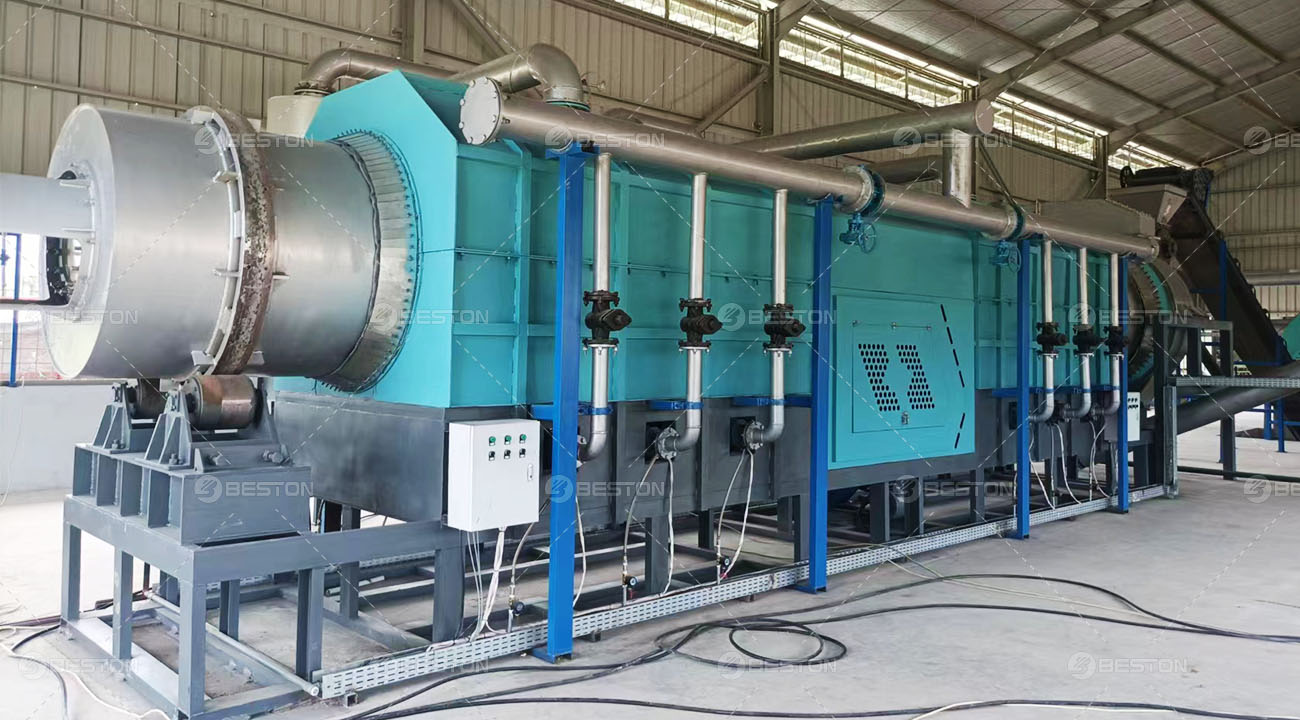Charcoal production has evolved beyond its traditional role as a source of heat for grilling and cooking. In recent times, the application of charcoal has expanded into the intricate web of the food processing industry, bringing forth a myriad of benefits and challenges. This article delves into the nuanced facets of charcoal production, exploring its distinct properties and the ways in which it enhances the food processing system.

Introduction
Definition of Charcoal Production
Charcoal production, at its core, involves the carbonization of organic materials, typically wood, at elevated temperatures in a low-oxygen environment. This process transforms the material into charcoal, a substance with unique properties and applications. Generally, people prefer to use more advanced charcoal making machine to produce high-quality charcoal.
The Evolution of Charcoal’s Role in Industries
From its historical significance in fueling ancient industries to its contemporary applications, charcoal has undergone a transformative journey. Today, its role extends far beyond the domestic sphere, influencing the operations of various industries, including food processing.
Charcoal’s Distinct Properties
Carbonization Process
Pyrolysis Unveiled: Charcoal’s creation is rooted in the pyrolysis of organic matter, a process where high temperatures cause the material to decompose into carbon-rich residue. Understanding this fundamental mechanism is crucial to appreciating the unique attributes of charcoal.
High Carbon Content Benefits
Improved Heat Generation: The high carbon content of charcoal translates into a superior heat-generating capacity, making it a preferred choice for industrial applications. This characteristic ensures efficient energy utilization in food processing. For example, a coconut processing factory can use coconut shell charcoal making machine to broaden its product range. At the same time, coconut shell charcoal with high calorific value also provides alternative energy.
Chemical Neutrality: Unlike other fuels, charcoal’s chemical neutrality plays a pivotal role in various processes within the food industry. It prevents unwanted reactions during food preparation and processing, preserving the integrity of the final product.
Charcoal in Food Processing
Charcoal as an Alternative Heat Source
Energy Efficiency in Food Production: Integrating charcoal as an energy source in food processing not only enhances efficiency but also contributes to cost reduction. The controlled heat release from charcoal facilitates precise temperature management during various production stages.
Reduction in Carbon Footprint: By opting for charcoal, the food processing industry can actively participate in reducing its carbon footprint. Charcoal’s lower emissions, compared to conventional fuels, align with contemporary sustainability goals.
Activated Charcoal in Food Purification
Adsorption Mechanism Activated charcoal’s unique porous structure enables it to adsorb impurities and contaminants from food products. However, the processing of this product places high demands on charcoal production machine. This purification process ensures a higher quality and safer end product.
Purification Applications From edible oils to beverages, the use of activated charcoal has become instrumental in ensuring the purity of food products. Its application in food purification processes exemplifies its versatility within the industry.

Environmental Impact and Sustainability
Sustainable Forestry Practices
Responsible Sourcing: As the demand for charcoal rises, promoting sustainable forestry practices becomes imperative. Responsible sourcing ensures the long-term availability of raw materials without compromising ecosystems.
Carbon Sequestration Benefits
Mitigating Greenhouse Gas Emissions: Charcoal production, when managed sustainably, contributes to carbon sequestration. This mitigates the release of greenhouse gases, aligning with global efforts to combat climate change.
Charcoal’s Role in Sustainable Agriculture: The by-products of charcoal production can be utilized to enhance soil fertility, presenting an opportunity to integrate charcoal production into sustainable agricultural practices.
Technological Advancements
Modern Charcoal Production Techniques
Efficient Kiln Technology: Technological advancements in kiln design have significantly improved the efficiency of charcoal production. Modern kilns ensure optimal carbonization, reducing waste and energy consumption.
Automation in Charcoal Production: The incorporation of automation in charcoal production streamlines processes, enhancing productivity and minimizing the industry’s reliance on manual labor. As the industry’s leading manufacturer of charcoal making machines, Beston Group Co., Ltd. can provide machines with a high degree of automation.
Challenges and Future Prospects
Regulatory Considerations
Environmental Regulations: Stringent environmental regulations pose challenges for charcoal production. Adhering to these regulations is crucial for sustainable industry growth.
Health and Safety Standards: Ensuring the health and safety of workers in the charcoal production industry requires ongoing efforts to meet and exceed industry standards.
Innovations in Charcoal Applications
Emerging Technologies: Ongoing research and development are uncovering new applications for charcoal, expanding its potential beyond current uses.
Potential Collaborations with Other Industries: Collaborations between the charcoal industry and other sectors may yield innovative solutions and open new avenues for sustainable practices.
In conclusion, the expanding role of charcoal in the food processing industry is a testament to its versatility and potential. From its distinct properties to technological advancements, the journey of charcoal intertwines with the evolving landscape of sustainable and efficient industrial practices. Balancing growth with environmental responsibility remains a challenge, but with ongoing innovations, the future promises a more harmonious integration of charcoal within the broader industrial ecosystem.